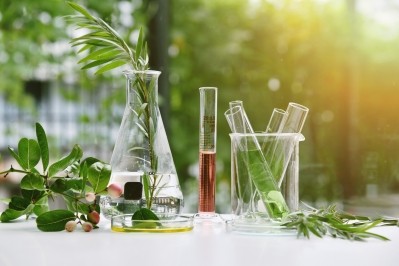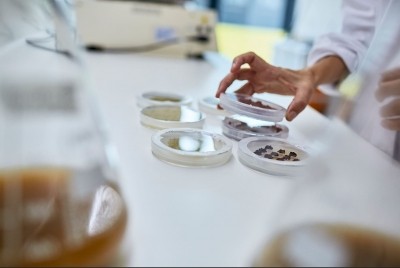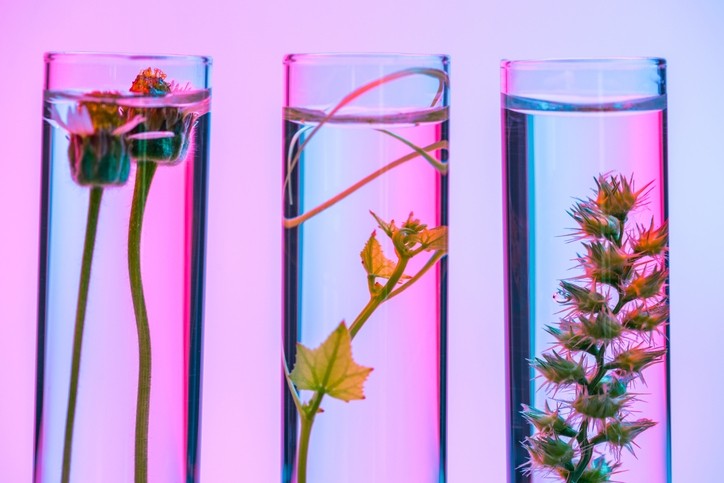Biotechnology is increasingly used to create ingredients for cosmetics formulations in response to sustainability issues (Image: Getty) As biotechnology becomes more prominent in sourcing ingredients for cosmetics formulations, we reveal some of the pioneering businesses that are disrupting the cosmetics ingredients sector…
Naolys
The French biotech firm is based in Bordeaux and develops and produces active ingredients for the cosmetic industry. Its special area of focus is active plant cells made through a biotechnology process, the plant cell culture.
Naolys said it relies on the advice of toxicology experts and university professors to validate its research and partners with experts at the University of Bordeaux in science, medicine and pharmacy, as well as The Bordeaux National Institute on Agronomic Research (INRA).
Recent launches include a sustainable skin care ingredient that utilises Intelligent Cellular Stimulation to rejuvenate the skin and reduce wrinkles. According to the company, it “targets oxidised proteins and senescent cells” and is clinically proven to diminish wrinkles and enhance skin quality.
As hair is the category in the spotlight for 2024, it also launched an anti-ageing active especially dedicated to the extension of the hair growth cycle, HairRevive [MM+Zn], which it had described as “a plant shell made of musk mallow cells and mineral zinc” that will “help to maintain growth, length, and pigmentation of hair, all the hair growth cycle.”

Debut
US-based biotech pioneers Debut has signed a contract with multinational L’Oréal Groupe for the company to develop more than a dozen bio-identical ingredients that will replace conventionally sourced ingredients currently used in various L’Oréal global brands across the skin, hair, colour cosmetics and fragrance categories.
Vertically integrated biotech business Debut creates scientifically engineered, bio-based and clinically proven products and brands at scale and claims its practices are “based on potency, purity, and performance.”
The San Diego-based company said it is focused on facilitating the beauty industry’s shift from traditionally sourced ingredients – derived from petroleum and cultivation – to high-performing yet potentially more sustainable biotech ingredients.
Aethera Biotech
Italian green biotech company Aethera Biotech recently partnered with French naturals company Robertet Group to launch a new patented ‘rose’ extract .
The partners plan to work together in the biotech phytocomplexes field, on what they have dubbed “a sustainable and visionary partnership”, which will combine Robertet Group’s natural ingredients sourcing expertise with Aethera Biotech’s scientific innovation to “increase the value of the plant world.”
We caught up with Robertet Group’s Raffaella Rizzi to learn more about this innovation – AQ3Rose CROP-G – at this year’s in-cosmetics global show, where ingredients made using biotechnology were big news.

Exolab Italia
With exosomes a current skin care category focus, ExoLab Italia, a startup specialising in plant-derived exosomal technologies from Italian organic fruits and vegetables, is one to bet on
Exosomes are extracellular vesicles naturally released by cells in all living organisms that are known to promote healing and regeneration in the skin.
At the global trade show InCosmetics Global 2024 in April, the company unveiled a new ingredient Exo Elixir, which was derived from alpine rose petals, is titrated in L-Ascorbic acid, and comes in a powder format.
The business is now collaborating with multinational DSM-Firmenich, and CosmeticsDesign-Europe thinks it’s one to watch for the future…
Microphyt
Another French company that’s doing great things in the biotech space is Microphyt, which works with micro-algae to create cosmetic ingredients.
At this year’s InCosmetics 2024 show, the business unveiled two new ingredients Luteana for facial skin care and Luteana Scalp for hair care.
Microphyt has identified two molecules of interest to address structural and biochemical imbalances: DHA, a microalgae omega-3, which it said is “able to restore structural imbalance through lipid cement restructuration.” Along with Fucoxanthin: “a marine world carotenoid, able to restore biochemical imbalance thanks to anti-inflammatory and anti-protease actions.”
The company’s ingredients were derived from a Tahitian microalgae species Tisochyrisis lutea, which has an impressive ability to adapt as it is sensitive but lives in a stressful environment (hot water with a high salt and acidity content).

